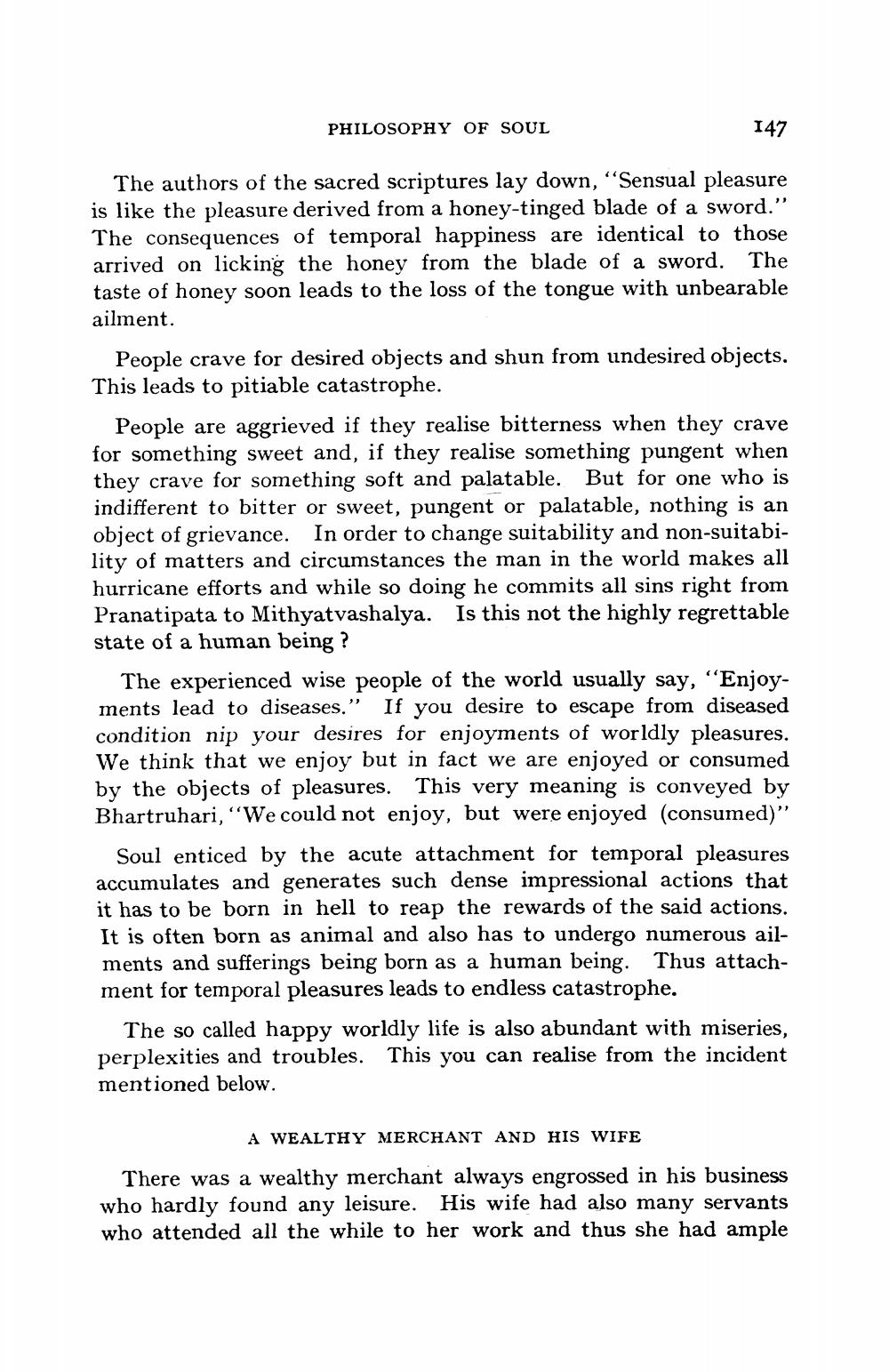________________
PHILOSOPHY OF SOUL
147
The authors of the sacred scriptures lay down, “Sensual pleasure is like the pleasure derived from a honey-tinged blade of a sword.” The consequences of temporal happiness are identical to those arrived on licking the honey from the blade of a sword. The taste of honey soon leads to the loss of the tongue with unbearable ailment.
People crave for desired objects and shun from undesired objects. This leads to pitiable catastrophe.
People are aggrieved if they realise bitterness when they crave for something sweet and, if they realise something pungent when they crave for something soft and palatable. But for one who is indifferent to bitter or sweet, pungent or palatable, nothing is an object of grievance. In order to change suitability and non-suitability of matters and circumstances the man in the world makes all hurricane efforts and while so doing he commits all sins right from Pranatipata to Mithyatvashalya. Is this not the highly regrettable state of a human being ?
The experienced wise people of the world usually say, "Enjoyments lead to diseases.” If you desire to escape from diseased condition nip your desires for enjoyments of worldly pleasures. We think that we enjoy but in fact we are enjoyed or consumed by the objects of pleasures. This very meaning is conveyed by Bhartruhari, “We could not enjoy, but were enjoyed (consumed)”
Soul enticed by the acute attachment for temporal pleasures accumulates and generates such dense impressional actions that it has to be born in hell to reap the rewards of the said actions. It is often born as animal and also has to undergo numerous ailments and sufferings being born as a human being. Thus attachment for temporal pleasures leads to endless catastrophe.
The so called happy worldly life is also abundant with miseries. perplexities and troubles. This you can realise from the incident mentioned below.
A WEALTHY MERCHANT AND HIS WIFE
There was a wealthy merchant always engrossed in his business who hardly found any leisure. His wife had also many servants who attended all the while to her work and thus she had ample




